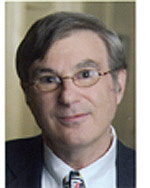Determinism or Free Will by Chapman Cohen; Literary Licensing LLC, Whitefish, MT; ISBN 978-1-2581-2881-4 ©2012 reprint of a book published in 1919, $25.95, p. 127
Free Will by Sam Harris; Free Press, New York ISBN 978-1-4516-8347-0 ©2012, $9.99, p. 81, including notes and index
By Fred Reiss, Ed.D.

WINCHESTER, California–Judaism provides no help in settling the debate of whether or not humanity has free will because biblical sources encourage the belief that we both possess and lack free will. In Deuteronomy (30:19) it says, “I have set before you life and death, the blessing and the curse; therefore chose life,” and the apocryphal book Psalms of Solomon (9:4) declares, “Right and wrong are the work of our hands.” The Book of Jeremiah (10:23) records the opposite: “I know that man’s way is not his own; it is not in man to direct his steps as he walks,” and Daniel (11:36) says, “That which is determined shall be done.”
Even the rabbis are of little help. Rabbi Huna (Talmud, Makkot 10b), states, “A man is led the way he wishes to follow,” while Rabbi Akiba tries to reconcile the two opposites by saying, “All is foreseen, yet man is endowed with free will” (Mishna, Pirke Avot 3:15). A vestige of these beliefs arises during the Jewish High holidays. Traditional Jews understand that on one day, Yom Kippur, God seals their fate for the upcoming year, and only meaningful prayer, repentance, and charity can avert a sever decree. (Unfortunately, the following Yom Kippur one does not know if he or she averted a severe degree, or if none were issued.)
Catholicism is just as confusing. On one hand the apostle Paul, drawing on his Jewish roots in his letter to the Romans wrote that with respect to God, mankind is like clay in the hands of a potter; yet the early church father Augustine wrote that God gave mankind free will that can only respond to God’s will through divine grace, which itself is predestined. So, can people make choices unencumbered by antecedents, or our choices predetermined?
Chapman Cohen, a non-practicing Jewish, self-taught philosopher, who played a major role in the Freethinker Movement until his death wrote Determinism Or Free Will in the early twentieth century, a time when Newton’s deterministic laws, the idea that given all the forces acting on an object (the cause) one can predict with absolute certainty how that object will behave in the future (the effect), ruled science.
Cohen, as a Freethinker, made his judgments on the basis of science, logic, and reason and so he believed that causation could be readily applied to human behavior. “What Copernicus and Kepler did for astronomy, Determinism aims at doing for the world of psychological phenomena.” The distinction between determinists and those who believe in free will is that determinists deny that the forces acting on the human mind “can ever furnish an adequate and exhaustive amount of human action.”
As far as Cohen is concerned, “It is sometimes said that no matter how convinced a Determinist one may be, one always acts as though the will were free. This, so far from being true, is the reverse of what really happens.”
Fast forward about a century. Sam Harris, a philosopher by training and co-founder and CEO of Project Reason, a non-profit organization with the goal of spreading scientific knowledge and secular values, argues in his newest book Free Will that there are two main philosophical approaches to resolving the question of free will: incompatibilism and compatibilism. On one hand, incompatibilism holds that free will is a fantasy, that is, free will and determinism are incompatible and our behaviors are out of our control. On the other hand, compatibilists assert that free will and determinism are compatible. In the same vein as Cohen, Harris puts himself in the camp of the incompatiblists by asserting that free will is an illusion. Drawing on biology rather than physics, Harris concludes that we do not chose, rather unconscious neural events determine our thoughts and behaviors.
As we live our lives and act out our choices, determinism feels wrong. Yet, if Cohen and Harris are correct, then there are huge consequences for religions, which declare that God punishes for sinful behavior and for the legal system as we punish convicted criminals because of a powerful belief in free will, a belief that says we are the conscious source of our thoughts, motivations and behaviors, and therefore could have behaved differently. Even the US Supreme Court ruled that a “universal and persistent” foundation of our legal system lies in the belief of free will.
Cohen and Harris clearly express the points of view of the determinists and counter with lucid arguments that the human will is not free. Standing before the pearly gates on Judgment Day, perhaps we should be prepared to yell, “Newton and my gnome made me do it.”
*
Dr. Fred Reiss is a retired public and Hebrew school teacher and administrator. He is the author of The Standard Guide to the Jewish and Civil Calendars; Ancient Secrets of Creation: Sepher Yetzira, the Book that Started Kabbalah, Revealed; and Reclaiming the Messiah. The author can be reached at fred.reiss@sdjewishworld.com